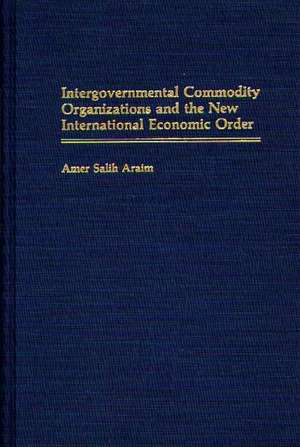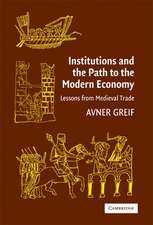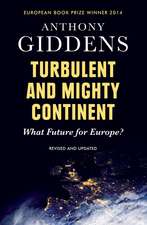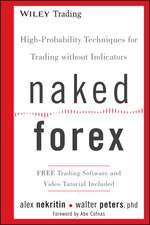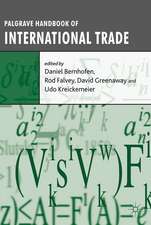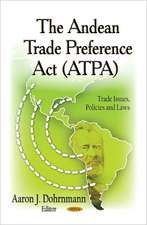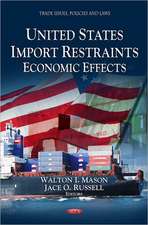Intergovernmental Commodity Organizations and the New International Economic Order
Autor Nibras M. Araimen Limba Engleză Hardback – 29 iul 1991 – vârsta până la 17 ani
Preț: 438.84 lei
Preț vechi: 708.34 lei
-38% Nou
Puncte Express: 658
Preț estimativ în valută:
83.97€ • 88.08$ • 69.91£
83.97€ • 88.08$ • 69.91£
Carte tipărită la comandă
Livrare economică 01-15 aprilie
Preluare comenzi: 021 569.72.76
Specificații
ISBN-13: 9780275934057
ISBN-10: 0275934055
Pagini: 256
Dimensiuni: 156 x 235 x 24 mm
Greutate: 0.58 kg
Ediția:New.
Editura: Bloomsbury Publishing
Colecția Praeger
Locul publicării:New York, United States
ISBN-10: 0275934055
Pagini: 256
Dimensiuni: 156 x 235 x 24 mm
Greutate: 0.58 kg
Ediția:New.
Editura: Bloomsbury Publishing
Colecția Praeger
Locul publicării:New York, United States
Notă biografică
AMER SALIH ARAIM is Senior Political Affairs Officer in the Department of Political and Security Council Affairs at the United Nations.
Cuprins
PrefaceIntroductionThe Role of the General Assembly in Promoting the New International Economic Order and Restructing International TradeContributions of GATT and UNCTAD to the Promotion of International Trade in CommoditiesThe Organization of Petroleum Exporting CountriesThe Growth of OPECRelations Between OPEC and Other Components of the International Oil MarketThe Intergovernmental Council of Copper Exporting CountriesThe International Bauxite AssociationThe International Coffee OrganizationConclusionBibliographyIndex
